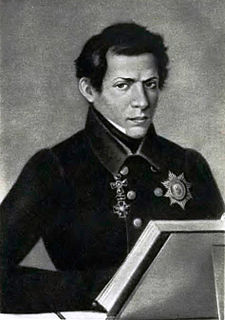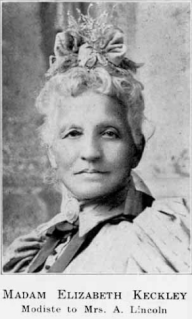A Quote by Nikolai Lobachevsky
In geometry I find certain imperfections which I hold to be the reason why this science, apart from transition into analytics, can as yet make no advance from that state in which it came to us from Euclid.
As belonging to these imperfections, I consider the obscurity in the fundamental concepts of the geometrical magnitudes and in the manner and method of representing the measuring of these magnitudes, and finally the momentous gap in the theory of parallels, to fill which all efforts of mathematicians have so far been in vain.
Quote Topics
Advance
Analytics
Apart
Been
Belonging
Came
Certain
Concepts
Consider
Efforts
Euclid
Far
Fill
Finally
Find
Fundamental
Gap
Geometry
Hold
Imperfections
Make
Manner
Mathematicians
Measuring
Method
Momentous
Obscurity
Parallels
Reason
Reason Why
Representing
Science
State
Theory
Transition
Us
Vain
Which
Why
Related Quotes
We admit, in geometry, not only infinite magnitudes, that is to say, magnitudes greater than any assignable magnitude, but infinite magnitudes infinitely greater, the one than the other. This astonishes our dimension of brains, which is only about six inches long, five broad, and six in depth, in the largest heads.
One... gets an impression that civilization is something which was imposed on a resisting majority by a minority which understood how to obtain possession of the means to power and coercion. It is, of course, natural to assume that these difficulties are not inherent in the nature of civilization itself but are determined by the imperfections of the cultural forms which have so far been developed.
There is the theory that all the living forms in the world have arisen from a single source which itself came from an inorganic form. This theory can be called the 'general theory of evolution,' and the evidence which supports this is not sufficiently strong to allow us to consider it as anything more than a working hypothesis.
That this subject [of imaginary magnitudes] has hitherto been considered from the wrong point of view and surrounded by a mysterious obscurity, is to be attributed largely to an ill-adapted notation. If, for example, +1, -1, and the square root of -1 had been called direct, inverse and lateral units, instead of positive, negative and imaginary (or even impossible), such an obscurity would have been out of the question.
In 1975, ... [speaking with Shiing Shen Chern], I told him I had finally learned ... the beauty of fiber-bundle theory and the profound Chern-Weil theorem. I said I found it amazing that gauge fields are exactly connections on fiber bundles, which the mathematicians developed without reference to the physical world. I added, "this is both thrilling and puzzling, since you mathematicians dreamed up these concepts out of nowhere." He immediately protested: "No, no. These concepts were not dreamed up. They were natural and real."
That which causes us trials shall yield us triumph: and that which make our hearts ache shall fill us with gladness. The only true happiness is to learn, to advance, and to improve: which could not happen unless we had commenced with error, ignorance, and imperfection. We must pass through the darkness, to reach the light.






































